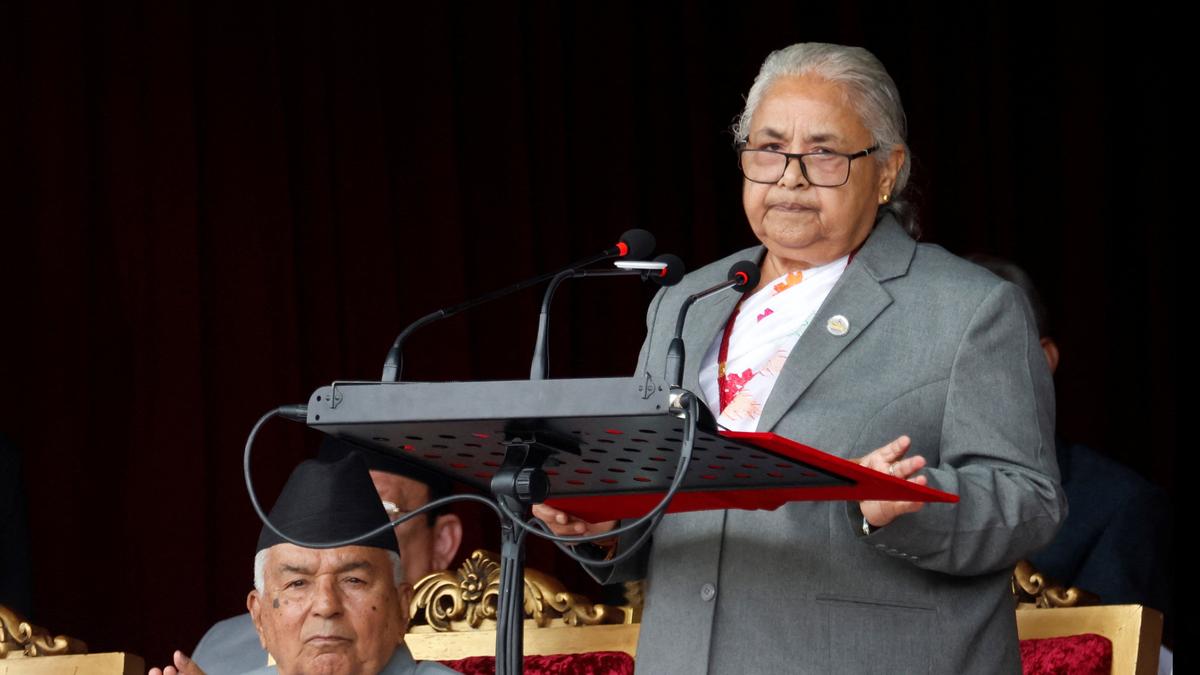Nepal’s political landscape witnessed a major shift on Thursday as interim Prime Minister Sushila Karki announced a reduction in the voting age from 18 to 16, a move designed to empower the country’s youth in the wake of unprecedented protests.
The decision was revealed during Karki’s first address to the nation since taking office on September 12. Her appointment followed the resignation of KP Sharma Oli, who stepped down amid public outrage, particularly from Gen-Z demonstrators, over corruption and restrictions on digital freedoms.
The voting age revision was formalised via an ordinance issued by President Ram Chandra Paudel, under Article 114(1) of the constitution. This amendment to the Voter Roll Act, 2017 enables thousands of 16- and 17-year-olds to participate in the upcoming general elections, scheduled for March 5, 2026.
Karki’s Promise: Free and Fearless Elections
During her nationally televised speech, Karki stressed the government’s readiness to organise a democratic process that is transparent and inclusive. She emphasised that necessary preparations were already underway in coordination with the Election Commission, covering everything from logistics to security.
“To find a way out of this complex situation, the government has already started preliminary work for the general election by holding the election in a free, fair and fear-free environment by March 5, after discussing with the Election Commission officials the necessary manpower, budget, election materials, security and legal arrangements.”
A Call to the Nation
Karki urged every eligible citizen, especially first-time voters to embrace their right to vote and participate in rebuilding Nepal’s democratic institutions. She encouraged all political stakeholders to support the electoral process.
“I would like to call on all Nepali sisters and brothers to participate enthusiastically in the upcoming elections of the House of Representatives and to select qualified people’s representatives who can represent the aspirations of the youth for change.”
“I also call on all political parties, civil society, the media and all relevant stakeholders to actively participate in the successful conduct of free, fearless and fair elections.”
Accountability After Protests
The interim Prime Minister also addressed the tragic loss of life during the recent uprising. At least 74 people, many of them young protesters died in confrontations with security forces. Karki said that her administration would ensure that those responsible are held accountable.
“A peaceful environment is essential for the conduct of the elections. Therefore, I request all sisters and brothers residing in all geographical areas of the country to maintain a peaceful environment with patience.”
Diplomatic Support and Political Transition
In her remarks, Karki acknowledged the support of neighboring countries, particularly India, during Nepal’s turbulent transition. She noted a recent phone call with Indian Prime Minister Narendra Modi, who extended greetings for Nepal’s National Day and expressed solidarity with the country’s democratic aspirations.
The interim government, formed with the support of civil society leaders and youth movements, is committed to overseeing a smooth transition. Karki, a former Chief Justice, stated that she would step down following the March 2026 elections, once a new government is democratically elected.
A New Era for Nepal’s Youth
The decision to lower the voting age comes as a direct response to the demands of the youth, who played a pivotal role in forcing political change. The government’s move is being seen as a historic concession to a generation that has demanded accountability, representation, and reform.


